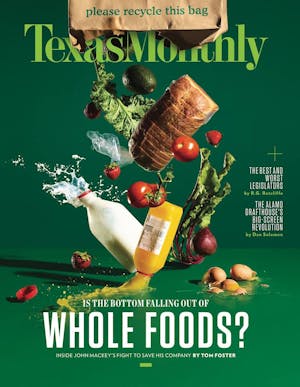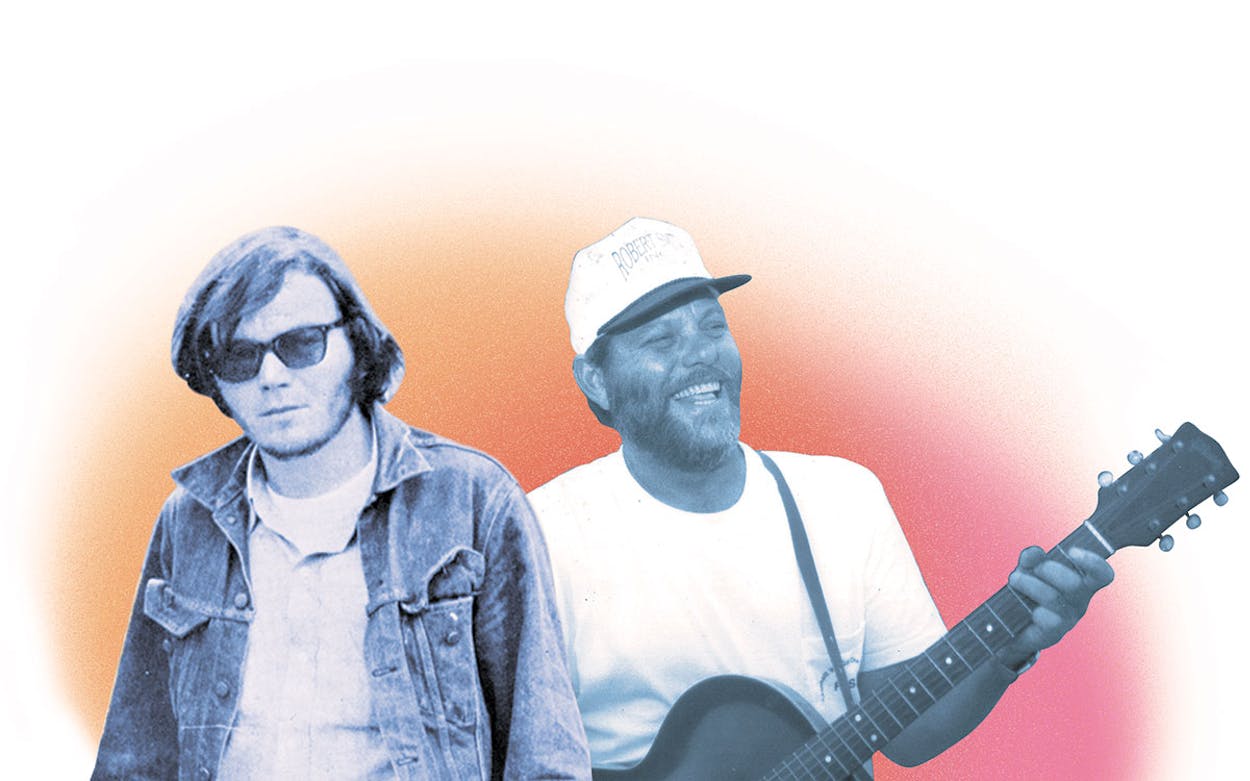As far as they know, Will Beeley and Billy Stoner have never met. Yet from a distance, they might almost be the same person. Both are country musicians, both played at Austin clubs in the seventies, both hung out with Willie Nelson back in the day, and when both of them gave up on music as a vocation, they turned to trucking to pay the bills.
And now they have something else in common: their debut albums are receiving their first official releases, decades after they were recorded. On June 16, the label Team Love put out Stoner’s long-lost self-titled debut, which was recorded in 1980 and never released. Two weeks later, on June 30, Tompkins Square will release Beeley’s long-lost debut, Gallivantin’, which was recorded in 1971 and received a vanity pressing of two hundred (today copies go for more than $500 online). That same day, the label will also reissue Beeley’s more widely distributed second album, Passing Dream.
Two men, two similar trajectories, but two very different sensibilities, as their albums and their answers to an identical set of questions reveal.
Texas Monthly: What do you remember about Austin in the seventies?
Will Beeley: It was really hard to get in there to play. I got to play at the Chequered Flag and at the Saxon Pub twice. But it was real difficult. There was an awful lot of talent running around back in those days. Everybody had a guitar, everybody wrote songs.
Billy Stoner: The explosion of the outlaw country phenomenon. My band played shows with Willie Nelson, Jerry Jeff Walker, Waylon, the whole crew. We opened for them, we played with them—it was all one band back in those days. Everybody played with everybody.
TM: Did you ever meet Willie?
WB: In late 1970 or early 1971, a couple of radio station buddies of mine in San Antonio said, “Hey, do you want to meet Willie Nelson?” And I said, “Yeah.” We all met at this little bar in San Antonio on San Pedro Avenue after his gig. He had short hair and was clean-shaven back then. Then we wound up back at his motel room, on Loop 410, and sat around and passed a guitar back and forth until the sun came up. We told Willie, “You’re just way too cool for country music, and not country enough for country. You need to come up with some kind of twist.” And then, in 1973, Shotgun Willie came out, and there he was on the cover with long hair and a beard, and I thought, “He listened to us!”
BS: I met Willie many times. I know several stories about him, but I don’t know if I should repeat them. And you can quote me on that.
TM: Who’s the greatest: Willie, Waylon, or Townes?
WB: You’re comparing apples and oranges. Townes was an animal all to his own. He was what got me to want to play. When I was in high school, I used to sneak into this folk-music place called Dougie’s, over near San Antonio College—he used to play there on a regular basis. It was him and Bill Moss and Don Sanders, and I looked at these guys and thought, “My God, man, they’re making a living playing music.” That amazed me. That was what I wanted to do.
BS: Willie. Just because I love him. He’s still Willie, same as always. I knew Townes real well too. He and I were in the Travis County jail together. I was involved in a drug bust, and the police found Townes passed out in the street in Austin, so they brought him to the drunk tank, and he was my roommate there. He was on the upstairs bunk, and he fell off and broke his arm. I never will forget that.
TM: Which is a tougher life—trucking, or making music?
WB: Trucking is a pretty easy way to make a living if you enjoy driving and you enjoy seeing what’s on other side of hill and getting paid for it. I think it’s a lot easier than music. I was so dedicated to writing songs I’d get up in the morning and I’d write, then I’d take a two-mile jog, then go to a coffee shop and I’d write notes on napkins for songs, then I’d walk back to the house to play all afternoon and take a shower and go to a gig. Then I’d come home and unwind by playing. All I did was write and play. I just wanted to be a songwriter, that’s all I wanted to do.
BS: Trucking is tougher. Especially now. I don’t do it anymore, I’m retired. It’s really bad out there; I couldn’t do it now if they put a gun to my head.
TM: When you listen to the music you recorded decades ago, how does it sound to you now?
WB: Gallivantin’ sounds like what it is: an eighteen-, nineteen-year-old kid writing songs. Several of the songs really date themselves. A couple are okay.
BS: It sounds beautiful to me. I started crying when I heard it.









